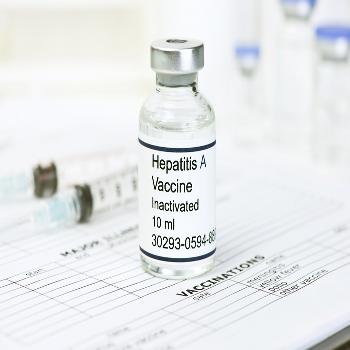Recommendations from the CDC for Hepatitis A Vaccination:
Routine Childhood Vaccination:
- The Hepatitis A vaccine is recommended for all children at age 1 year (12-23 months).
- Two doses are required for long-term protection, with the second dose administered 6 to 18 months after the first.
Vaccination for High-Risk Groups:
- Travelers to areas with high or intermediate rates of Hepatitis A.
- Individuals with Chronic Liver Disease: Those with chronic liver conditions should receive the vaccine to prevent complications from Hepatitis A infection.
- Men Who Have Sex with Men: This group is at increased risk for Hepatitis A and should be vaccinated.
- Drug Users: Those who use illegal drugs, whether injected or not, should be vaccinated.
- People with Close Contact to an infected person: This includes household members and caregivers.
Post-Exposure Prophylaxis:
- Unvaccinated individuals exposed to Hepatitis A should receive the vaccine within 2 weeks of exposure.
- Immunoglobulin may also be administered to those who cannot receive the vaccine.
Travelers:
- Individuals planning to travel to countries where Hepatitis A is common should receive the vaccine at least 2 weeks before travel.
Important Considerations:
- The Hepatitis A vaccine is administered as an intramuscular injection.
- Common side effects may include soreness at the injection site, fatigue, headache, and mild fever. Serious side effects are rare.
- Vaccination effectively reduces the risk of infection and transmission of Hepatitis A, providing long-lasting immunity.
The Hepatitis A Vaccination is a vital preventive measure that protects individuals and communities from the serious consequences of Hepatitis A infection, contributing to public health efforts to control this preventable disease.
Why do I need the Hepatitis A Vaccine?
The Hepatitis A Vaccine is important for:
Preventing hepatitis A infection: Hepatitis A can cause symptoms like fever, fatigue, jaundice, and liver inflammation. In some cases, it can lead to severe liver disease.
Protecting high-risk groups: Individuals who travel to areas where hepatitis A is common, men who have sex with men, people with chronic liver disease, and those who use recreational drugs are at higher risk and should be vaccinated.
Preventing outbreaks: Hepatitis A can spread through contaminated food or water, and vaccination helps prevent the spread, particularly in areas prone to outbreaks.
Ensuring protection during international travel: The CDC recommends vaccination for people traveling to countries with high or intermediate rates of hepatitis A, especially in parts of Asia, Africa, Central and South America, and Eastern Europe.
Who should receive the Hepatitis A Vaccine?
The Hepatitis A Vaccine is recommended for:
Children: The CDC recommends that all children receive the hepatitis A vaccine as part of the routine immunization schedule:
First dose: At 12–23 months of age.
Second dose: 6–18 months after the first dose.
Unvaccinated adults who are at increased risk for hepatitis A, including:
Travelers to areas where hepatitis A is common.
Men who have sex with men.
People who use recreational drugs, whether injected or not.
Individuals with chronic liver disease, including those with hepatitis B or C.
Individuals who are homeless or live in unsanitary conditions.
Those who work with hepatitis A-infected animals or in laboratories.
Anyone who wants to be protected from hepatitis A, even if they are not at high risk, can receive the vaccine.
How many doses of the Hepatitis A Vaccine are needed?
The standard vaccination schedule for hepatitis A involves two doses:
Dose 1: The initial dose is given at a convenient time for the individual.
Dose 2: Administered 6–18 months after the first dose.
The two doses are needed for long-term protection. If someone has not received the second dose on time, they do not need to restart the series—getting the second dose as soon as possible will complete the series.
